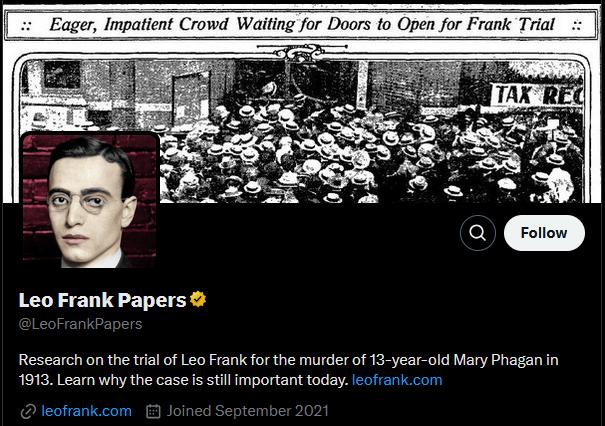Title: Unveiling the Shadows: True Crime Documentaries and Controversial Legal Cases
Introduction:
In recent years, true crime documentaries have captivated audiences worldwide, offering an immersive exploration into some of the most perplexing and controversial legal cases. These documentaries go beyond sensationalism, providing a platform for critical analysis and discourse on issues such as justice, ethics, and the intricacies of the legal system. By delving into complex narratives and presenting diverse perspectives, they challenge viewers to reconsider preconceived notions about guilt, innocence, and the very nature of truth. This article examines how true crime documentaries serve as both mirrors and magnifiers of societal issues, prompting a deeper understanding of the human condition through the lens of real-life legal controversies.
Exploring the Intersection of Crime and Media: The Impact of True Crime Documentaries
True crime documentaries have become a cultural phenomenon, captivating audiences with their gripping narratives and in-depth investigations. These films often shine a light on controversial legal cases, prompting viewers to question the justice system and its intricacies. By delving into the intersection of crime and media, these documentaries not only entertain but also educate, encouraging critical thinking and public discourse.
Some of the most impactful documentaries explore the complexities of high-profile cases, shedding light on potential miscarriages of justice. These films often feature:
- Unbiased interviews: Conversations with key figures, including victims, suspects, and legal experts, offering diverse perspectives.
- Detailed analysis: In-depth examinations of evidence, trial proceedings, and legal loopholes.
- Reconstruction of events: Visual reenactments and archival footage that bring the narrative to life.
By examining these elements, viewers are invited to engage with the content critically, questioning the narratives presented and considering the broader implications on society and justice.

Delving into Legal Controversies: Case Studies in Modern True Crime Narratives
In the realm of true crime documentaries, certain narratives stand out for their exploration of legal controversies that challenge our understanding of justice. These documentaries delve into complex legal systems, often shedding light on systemic flaws and raising questions about due process. Through detailed storytelling and expert interviews, they invite viewers to critically analyze the intricate web of evidence, testimonies, and judicial decisions.
- Wrongful Convictions: Highlighting cases where individuals were imprisoned for crimes they did not commit, these documentaries examine the roles of flawed forensic evidence and coerced confessions.
- Self-Defense or Murder? Exploring the fine line between self-defense and premeditated murder, these stories often reveal biases in jury decisions and prosecutorial conduct.
- Influence of Media: Investigating how media coverage can sway public opinion and potentially impact verdicts, these narratives question the impartiality of high-profile trials.
Through these case studies, true crime documentaries not only captivate but also educate audiences about the complexities and imperfections of the legal system, prompting a deeper reflection on what justice truly means.

Understanding the Appeal: Psychological and Social Factors Behind True Crime Fascination
True crime documentaries captivate audiences by delving into the psychological intricacies and social dynamics that underpin notorious legal cases. The allure often stems from a deep-seated curiosity about the human condition and a desire to understand the motivations behind heinous acts. This fascination is fueled by the following factors:
- Empathy and Morbid Curiosity: Audiences are drawn to the emotional rollercoaster of empathy for victims and the morbid curiosity about the criminal mind.
- Sense of Justice: Watching justice unfold—or fail—provides viewers with a sense of moral resolution or outrage, prompting deeper engagement.
- Complex Characters: The nuanced portrayals of individuals involved, from perpetrators to investigators, create compelling narratives that resonate on a personal level.
Socially, these documentaries often serve as a platform for discussion, sparking debates about legal systems, ethical dilemmas, and societal values. They encourage viewers to reflect on broader themes such as the fallibility of justice and the impact of media sensationalism. By presenting multifaceted perspectives, these films invite audiences to question preconceived notions and consider the complexities of human behavior.

Top Picks for True Crime Enthusiasts: Documentaries That Challenge Legal Boundaries
True crime enthusiasts often find themselves drawn to documentaries that not only tell gripping stories but also delve into the murky waters of legal controversies. These films challenge the boundaries of justice, offering viewers a chance to question and reflect on the complexities of the legal system. “The Thin Blue Line” is a groundbreaking documentary that played a pivotal role in the exoneration of Randall Dale Adams, showcasing how investigative storytelling can impact real-life legal outcomes. Similarly, “Making a Murderer” has sparked widespread debate over the integrity of law enforcement and judicial processes, leaving audiences to ponder the potential flaws within the system.
- “The Staircase” – A deep dive into the trial of Michael Peterson, raising questions about forensic evidence and courtroom tactics.
- “West of Memphis” – A critical look at the wrongful conviction of the West Memphis Three, exploring the impact of media and public perception on legal proceedings.
- “The Central Park Five” – Examines the controversial convictions of five teenagers, highlighting issues of race and systemic bias.
These documentaries do more than entertain; they invite viewers to scrutinize the legal narratives that often go unquestioned. By spotlighting contentious cases, they push the boundaries of traditional storytelling, urging a deeper understanding of justice and its many imperfections.



